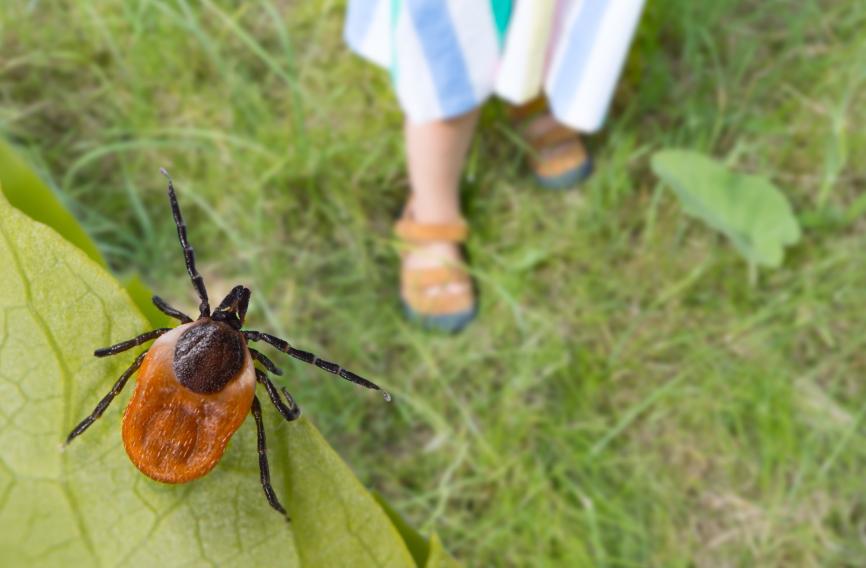
HOLLAND, Mich., June 4, 2024 — With the arrival of warmer weather and increased outdoor activity comes an uptick in tick bites. These small arachnids can transmit a variety of diseases, making it crucial to understand the proper response after encountering a tick.
Holland Hospital is biting back at these pesky pests by emphasizing the importance of early detection. The most critical step is the prompt and careful removal of the tick using fine-tipped tweezers. Grasp the tick close to the skin and pull upwards with steady, gentle pressure. After removal, disinfect the bite area and dispose of the tick properly.
According to the 2024 Michigan Lyme Disease Risk Map, courtesy of the Michigan Department of Health and Human Services, West Michigan has several counties listed with a known risk for Lyme Disease, with at least two confirmed local exposures and/or black-legged ticks with Lyme bacteria. While a tick bite itself may not be cause for immediate alarm, there are situations warranting a visit to a health care provider.
Individuals experiencing flu-like symptoms including fever, chills, fatigue, or muscle aches can be early indicators of tick-borne illness. Family Nurse Practitioner Jennifer Jarrell at Holland Hospital Primary Care Grand Haven outlines the following situations in which a visit to your primary care may be necessary.
For cases where the tick was attached for an extended period, generally more than 24 hours, there is an increased risk of disease transmission. If a rash appears around the bite site, a doctor's evaluation is recommended. The classic bullseye rash associated with Lyme disease is a telltale sign, but not all rashes are identical. Any unusual rash following a tick bite requires a trip to your primary care provider.
“Early diagnosis and treatment can significantly improve outcomes,” explained Jarrell. “Do not hesitate to seek medical attention if you notice a rash after a tick bite or if you have any concerns.”
Jarrell also suggests that anyone who experiences severe allergic reactions to a tick bite, such as difficulty breathing or swelling, should seek immediate medical attention at an urgent care center or emergency room. “Knowing how to identify ticks, prevent bites, and recognize the signs of illness is essential for a safe and healthy spring and summer,” she further explained.
The Michigan Department of Health and Human Services offers an online guide that illustrates the five most common ticks across the state. Holland Hospital encourages preventive measures so the West Michigan community can safely enjoy their time outdoors this spring and summer.
To maximize protection, Jarrell recommends a multi-layered approach. First, apply insect repellent containing DEET at a concentration of 30%. Second, consider treating clothing with permethrin-based repellents, which offer an extra layer of defense when applied directly to fabrics (not skin). Finally, after spending time outdoors, conduct thorough self-checks for ticks. Carefully examine your entire body and clothing, paying particular attention to hidden areas like the armpits, groin, and behind the ears.
To schedule an appointment with Jarrell visit hollandhospital.org/grandhaven. Holland Hospital also offers several convenient options to receive quality care, including Primary Care, Virtual Visits, Walk-In Care, Urgent Care and Emergency Care. For more information, visit hollandhospital.org/convenient-care.
###
FOR IMMEDIATE RELEASE
CONTACT
Jessica Meldrum, MS, APR
jmeldrum@hollandhospital.org
June 4, 2024